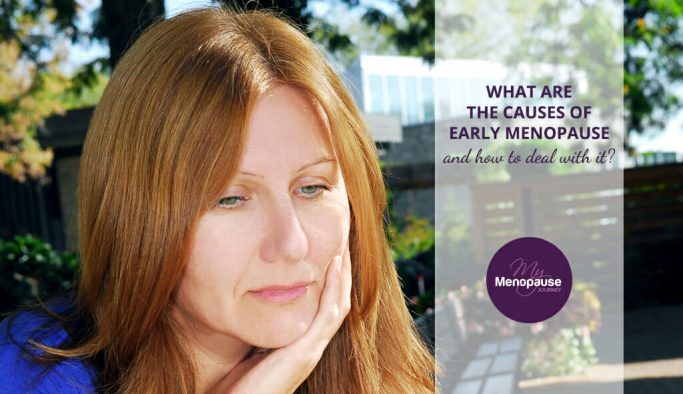Among many possible reasons behind every woman’s eagerness to lose weight, one thing remains the most valuable — our health.
It’s mind-blowing to know that our weight is a big-time influencer on our health status. In the simplest equation, a healthy weight equates to optimal health!
Now, you might be thinking: “There are so many things we can read in books and the Internet to help with weight loss — and I don’t know what to choose or how to start!” ? Well, it can indeed get overwhelming sometimes, but hey… Don´t lose weight to be healthy. Be healthy to lose weight!
In this article, we will get to know the bigger picture of why weight problems happen. Once you learn how everything in our body is interconnected, you can make better decisions on overcoming the major obstacles of weight loss!
Lastly, we will focus on practical tips to help with losing weight. The healthy habits we will be talking about further down are widely practiced by many health enthusiasts. Let’s get going!


Table of Contents
Achieving that “Dream Number” on the Scale
Just like any goal or mission, weight loss must be anchored to a significant purpose. How? Well, try asking yourself with a basic series of questions. You’ll be surprised at how they can do wonders to the pace, overall experience and results of your weight loss journey:
- “Why do you want to do it?” — Gives a clearer understanding of your purpose.
- “Who are you doing it for?” — Makes you more aware of the benefits that you will enjoy once you achieve your goal.
- “When are you going to start?” — Compels you to take action.
- “What are the things you need to be aware of?” — Urges you to think big and make a well-thought-out plan before kickstarting your weight loss journey.
One of the best ways to carry out these considerations is by knowing the major obstacles getting in the way of menopausal weight loss! Generally, the following health conditions are what lies behind weight gain in women:
- Stress
- Insulin Resistance
- Hormone Imbalance
- Sedentary Lifestyle
- Leptin Resistance
- Adrenal Fatigue
- Congested Lymph System
- Toxic Overload
- Lack of Sleep
That was bullet after bullet, right?! Does that mean we are helpless? Totally not!
The brilliant thing about our body is it has the capability to heal naturally. YUP, all you have to do is be mindful of your lifestyle and diet! As basic as it sounds, everything we feel still boils down to the way we live and the food we eat. So, try to ask yourself the following questions and be guided along your weight loss journey!
- Are you being watchful with the food you eat?
- Do you stay active enough?
- Are you keeping your hormones balanced?
- Do you avoid too much stress?
- How much sleep are you getting?
- Is there any toxic overload involved in your body?
- Are you maintaining healthy levels of insulin and leptin?
- Are your adrenals working efficiently?
- Is your lymph system clean?
Other than the points above, there are also other effective practices you can start adapting — and that’s what we will talk about next!
“Permanent results only come from permanent changes in diet and lifestyle.” — Dr. Joel Fuhrman”
8 Extra Tips to Lose Weight Effectively
Nowadays, we are offered with so many solutions that sometimes, it gets hard to decide which one to try. To make things easier and less overwhelming, here are 8 practical tips proven to be the most effective for weight loss!
TIP #1: Watch Those Carbs!
Going low-carb is one of the most commonly embraced practices among health enthusiasts. Moreover, midlife women can most especially benefit from a low-carb diet because it helps with weight loss and also relieves other menopause symptoms!
Does that mean we should ditch carbs totally out of our diet?
According to Dr. Josh Axe (Nutrition and Natural Medicine expert), certain types of carbs generally play a key role in our body — such as improving digestion, promoting heart health and optimizing brain function. In some cases, lacking “good carbs” in our diet, like fiber, can take a toll on our cholesterol levels, bowel function and more. Therefore, some carbs are essential for our body!
Bottom line? Good carb sources are the “fine line” that divides optimal body functions and weight gain. In contrast, we MUST say goodbye to bad carbs whatever it takes!
Moreover, Dr. Becky Gillaspy (a weight loss health expert) says that the best way to classify a low-carb food is to think about its source. In her video below, Dr. Becky talked about 100+ good carb sources! She also discussed informative facts for you to understand what you can eat on a low-carb diet!
TIP #2: Practice Intermittent Fasting!
Intermittent fasting is considered one of the “all-time heroes” for weight management and overall health! This healthy way of eating is known to bear a lot of benefits, particularly for menopause symptoms. Among the benefits of intermittent fasting are:
- Promotes weight loss
- Relieves hot flashes and night sweats
- Reduces food cravings
- Avoids sleep deprivation
- Prevents chronic stress
- Improves brain function
- Revitalizes skin, hair and nails
- Fights aging
- Treats insulin resistance
- Reduces the risk of heart disease
- Prolongs life
Generally, there are many intermittent fasting (IF) protocols you can choose from. But I personally practice the 16/8 protocol every day — a 16-hour fasting window and an 8-hour eating window.
During intermittent fasting, try to push your first meal as late as possible! You can start your first meal around lunchtime or until you feel hungry. Water, coffee and tea are okay while fasting — just make sure they are sugar-free! Then, you can have dinner between 6-7 pm. It’s okay to have a healthy snack as long as you are within your eating window.
One of IF’s widely known perks is “autophagy”. Autophagy is our body’s way to regenerate new healthier cells or clean out too damaged cells! Listen to this video from Dr. Eric Berg and discover more about the incredible benefits of intermittent fasting!
TIP #3: Embrace the Keto Green Way!
Let me get this straight, once and for all: Keto diet and Keto-Green way are not the same!
The Keto Green way was created by Dr. Anna Cabeca, a triple board-certified physician and women’s hormone expert. This healthy way of eating has helped thousands of women who experience adrenal fatigue and other menopause symptoms. In the Keto-Green way, the following healthy foods are allowed:
- Leafy greens and vegetables such as artichoke, asparagus, broccoli, cauliflower, kale, beets, celery and other low-carb veggies
- Grass-fed meat, wild-caught fish, shellfish and eggs
- Lemon, berries, avocado and olives
- Herbs such as turmeric, cinnamon, oregano, cilantro, basil, parsley, ginger and maca.
Check out this video from Dr. Anna and learn more about what Keto-Green way looks like!
TIP #4: Go for Healthy Fats!
Treating fats like villains is so outdated! Fats are also a primary source of energy and the key to staying healthy is to go for good fats.
You can find healthy saturated fats in coconut products (including unsweetened coconut flakes and coconut oil) and grass-fed meat. Saturated fats may have been highly associated with cardiovascular diseases, but that only applies to saturated fats from unhealthy sources! In fact, saturated fats are known to form our core “structural fats”, which serve as the “bedding” of our internal organs! So, they are still vital to our body!
Consequently, the best sources of healthy monounsaturated fats are olive oil, avocados, nuts, legumes, seeds and eggs. In contrast with saturated fats, monounsaturated fats are known for their beneficial effects on cardiovascular disease risk markers, reducing inflammation and decreasing blood pressure!
Another type of fats are the polyunsaturated fats. These fats are divided into omega-3 and omega-6 fatty acids. Healthy sources for omega-3 are mackerel, salmon, seabass, oysters, sardines, shrimp, trout, seaweed, chia and hemp seeds! Omega-3 intake reduces the risk of several chronic inflammatory conditions — including coronary heart disease. Additionally, omega-3 can also do your weight some favor by reducing metabolic problems, such as central obesity, also known as stubborn belly fat!
On the other hand, you can get healthy omega-6 fats in coconut oil, olive oil and avocado oil. Omega-6 plays an essential role in cell growth, brain health and muscle development! It can also help reduce nerve pain, decrease arthritis symptoms, lower blood pressure, reduce the risk of heart problems and support bone health.
TIP #5: Practice Mindful Eating!
Mindful eating is more than just about taking five whole minutes to chew up a piece of cauliflower!
According to Dr. Andrew Weil, a world-renowned expert in integrative medicine, mindful eating means “slowing down, expressing gratitude for the food we are eating, being satisfied with food and paying attention to why we eat.
Research shows that mindful eating can lead to greater psychological well-being, increased pleasure when eating and body satisfaction.
Therefore, combining habits such as mindfulness training, together with nutrition knowledge, leads to healthful food choices that promote a healthy weight and reduces the risk of chronic diseases!
“What’s the deal when you eat slowly?”
Good question! Mindful (a public benefit corporation for mindfulness communities) states that slowing down is one of the best ways we can do for our mind and body to communicate what we really need for nutrition. The body actually sends its satiation signal about 20 minutes after the brain, which is why we often unconsciously overeat. But, if we slow down, we can give our body a chance to catch up to the brain and hear the signals to eat the right amount.
You see, mindful eating makes our body and mind aligned — and that’s a bingo!
TIP #6: Avoid Snacking Out of Cravings!
The best way to avoid munching on unhealthy snacks here and there is to be attentive to your body’s personal hunger signals.
Ask yourself: Are you really responding to your body’s needs or simply reacting to an emotional need?
Most of the time, we listen to our mind more than we pay attention to our body. Little did we know that by focusing on “how we feel” instead of “what we think”, we can apply more wisdom to our habits!
Cravings can be driven by emotional signals. It could be stress, loneliness or just plain boredom — but isn’t that different from actually hearing your stomach growl, feeling your energy drop or getting a little nauseous?
Recognize your body’s hunger signals rather than your emotional cravings! It’s a guaranteed way to ensure that we are on the right track in our weight loss journey. How? By avoiding foods that are just emotionally comforting!
I mean, there are a lot of nutrient-rich foods that are also satisfying and comforting, right? As we practice eating healthier and more varied food choices, we are less inclined to binge on our comfort foods — and that sounds like a great weight loss support!
TIP #7: Get Moving with Varying Workout Routines!
The Centers for Disease Control and Prevention (CDC) recommends that all adults need to do a mix of physical activities weekly:
- Moderate-intensity aerobic activity for at least 150 minutes per week
- Muscle-strengthening activity on two or more days of the week. The exercises must work all of the major muscles in the body (legs, hips, back, abdomen, chest, shoulders and arms).
If you are a fan of the HIIT approach, CDC recommends that you should aim for an equivalent mix of moderate-high intensity exercises every week, along with two days of strength training!
I hear you… 150 minutes each week may sound like forever. But you’ll be surprised that it only takes at least 30 minutes a day, 5 days a week! CDC even suggests that you can spread out your exercise activities during the week or break it up into smaller bits of time during the day. That way, you don’t have to do everything at once!
There are also low-effort activities you can do such as yoga, Pilates and breathing exercises. To prevent adrenal fatigue, go for these routines during days that you feel too stressed!
Have a look and find the best mix of exercises that works for you through our archives! ? Exercises
TIP #8: Limit Alcohol Intake!
Good wines are so hard to resist, especially after a long day! But be careful as alcohol can spike your blood sugar, mess up with your weight and cause some serious health conditions!
When it comes to weight, alcohol can add some pounds on the scale for many possible reasons:
- It is high in calories.
- It leads to greater hunger and less satiety.
- It causes poor food choices.
- It raises the chance of overindulgence.
- It leaves a person tired, dehydrated and unmotivated — physical and emotional conditions that will cut off the odds of exercising!
That being said, alcohol is definitely not a friend to anyone who’s traversing her way to a healthier weight. Fortunately, there are now ways to spot a good wine to keep you on the right track!
Dr. Mindy Pelz, a red-wine lover herself, shared a few tips to enjoy wine without harming our health. One of them is to watch out for sugar content. Listen to her very informative video!
If you want to know the healthiest alcohol, Dr. Pelz also shows a list of drinks and the smart ways to consume them!
“Success is the sum of small efforts repeated day in and day out.” — Robert Collier”
My Personal Routine
So, where should you start?
Well, make simple and small healthy changes to your daily routine! Don’t do everything all at once. If you do, things might become unbearable for you. Take things slowly, yet be consistent!
Here’s a list of what I personally do. They have been keeping me strong and healthy! Not to mention how these habits helped me maintain the weight that I had when I was still a teen! This doesn’t mean, however, that it will work for you the way it worked for me — because we are all different! So, just have a good takeaway of what I do and who knows? They might actually work for you too!
- I drink lemon water first thing in the morning. It’s a proven weight-loss booster!
- I also do my exercise in the morning, so I can get it done before anything else.
- I drink tea or coffee during the morning hours, so I don’t have to break my fasting state!
- I take a brisk walk before my first meal at midday to get some air and sun for vitamin D!
- I always take my first meal of the day at around 1-2 pm. Usually, I go for a salad topped with eggs, tuna, lentils, nuts, seeds, avocado. Then, I add my homemade olive oil dressing! If I’m not that hungry, bone broth or a healthy green smoothie is good to go for me at lunch!
- Typically, I never get hungry between my two meals. But if I want a bit to munch on, I go for nuts, some berries or celery sticks with hummus!
- As I am sitting in front of my computer a lot, I set my alarm to ring every 30 mins. I do some movements on the floor or jump on my bouncer to get my lymph system flowing!
- I take my last meal of the day at around 6-7 pm.
- I switch off my gadgets and prepare for bed between 9-10 pm.
Takeaway
Now, are you ready to take action?
Without a doubt, our food choices, eating patterns and everyday habits affect the number on the scale! As we age, keeping our body healthy becomes more vital to us — not only for weight loss but also to manage other menopause symptoms. A healthier body equates to a better quality of life. Isn’t that what we want, after all? ?
So, don´t start a 30-day, 6-week or 3-month program to lose weight. Instead, create a “rest-of-your-life” program that you will enjoy doing while staying healthy! ?
References
drbeckyfitness.com/intermittent-fasting-is-it-worth-your-time/
draxe.com/nutrition/healthy-fats/
drannacabeca.com/blogs/keto-alkaline-diet/healthy-fats-in-eating-keto-green-what-you-should-know
drannacabeca.com/blogs/keto-alkaline-diet/fasting-the-keto-green-way
drweil.com/diet-nutrition/food-safety/what-does-mindful-eating-really-mean/
hsph.harvard.edu/nutritionsource/mindful-eating/
mindful.org/6-ways-practice-mindful-eating/
everydayhealth.com/menopause-pictures/ways-to-beat-menopausal-belly-fat.aspx
cdc.gov/physicalactivity/basics/adults/index.htm
betterhealth.vic.gov.au/health/healthyliving/Alcohol-and-weight-gain
verywellfit.com/alcohol-and-weight-gain-1231176
draxe.com/nutrition/carbohydrates/
drbeckyfitness.com/low-carb-food-list/
👉 What to Do Next
Don’t go just yet — especially if you’ve been feeling off and no one’s given you real answers.
Go to the START HERE page.
It’s where things begin to feel clearer. No more second-guessing, no more sorting through conflicting advice. Just calm, honest support for where you are right now.
And if you haven’t yet, download the FREE GUIDE.
It’s quick, clear, and made to help you feel better — without having to turn your whole life upside down.


Gita is the founder of My Menopause Journey. Since 2014, she has been supporting midlife women by sharing hard-earned learnings from her own experience. To advance her knowledge, Gita puts a lot of her time and effort into understanding the broad spectrum of women’s health. She immerses in extensive research about the physical, mental and emotional aspects of menopause. Gita believes in the life-changing power of healthy, holistic living — this is where she anchors her message to all women. Learn more about her marvelous mission in About us - My Menopause Journey.






